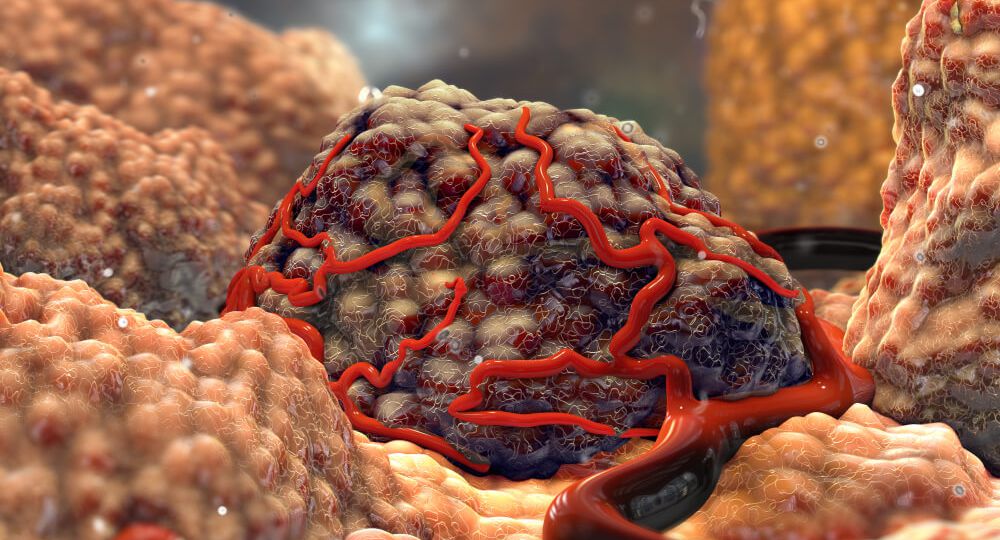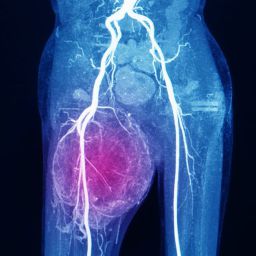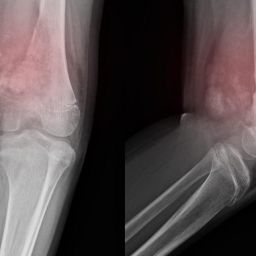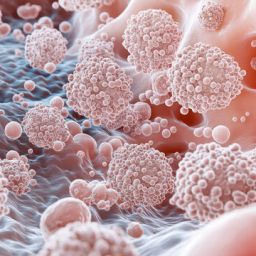
1. Understanding Soft Tissue Cancer and Its Treatment
Soft tissue cancer develops from the cells that form the body’s soft tissues. These cancers are rare but can occur in almost any part of the body. Treatment usually involves a combination of surgery to remove the tumor, radiation therapy, and chemotherapy, depending on the type, location, and stage of the cancer. Despite the focus on medical and surgical treatments, nutritional support and lifestyle adjustments are increasingly recognized for their role in boosting the body’s ability to cope with treatment, improving healing, and enhancing the immune system’s function.
A. Conventional Treatment of Soft Tissue Cancer
The primary treatments for soft tissue cancer include:

- Surgery: The goal of surgery is to remove the tumor and any surrounding tissue that may be affected. In some cases, reconstructive surgery may be required to restore function or appearance.
- Radiation Therapy: Radiation is often used to target cancer cells that remain after surgery or to shrink tumors before surgery.
- Chemotherapy: Chemotherapy drugs are used to target rapidly dividing cancer cells, typically for advanced cases or when the cancer is metastatic.
While these treatments are critical for cancer control, they can also lead to significant side effects such as fatigue, weakened immune function, loss of appetite, muscle wasting, and weight loss. This is where proper nutrition and lifestyle changes become essential for patient recovery and overall well-being.
2. The Importance of Nutrition in Soft Tissue Cancer Treatment
Proper nutrition plays a vital role in supporting the body during cancer treatment. The right diet can help improve strength, boost the immune system, reduce the side effects of treatment, and improve overall recovery. Conversely, poor nutrition can lead to malnutrition, decreased energy levels, and a weakened immune system, all of which can hinder cancer recovery and affect treatment efficacy.
A. Maintaining Adequate Nutritional Intake During Cancer Treatment
Many cancer patients experience significant challenges in maintaining their nutritional intake. This can be due to side effects like nausea, vomiting, loss of appetite, changes in taste, and difficulty swallowing. As such, it is crucial to work closely with a nutritionist or dietitian to ensure that nutritional needs are being met.
Key Nutrients for Cancer Patients:
- Proteins: Protein is essential for repairing tissues, maintaining muscle mass, and supporting the immune system. Cancer treatments, particularly chemotherapy and radiation, can lead to muscle wasting and weight loss. Consuming adequate protein through lean meats, fish, eggs, legumes, and dairy products is important for maintaining strength and preventing muscle loss.
- Carbohydrates: Carbohydrates provide the energy needed to support the body during treatment. Whole grains, fruits, vegetables, and legumes are excellent sources of complex carbohydrates, which help to maintain energy levels and stabilize blood sugar.
- Fats: Healthy fats are essential for maintaining body weight, as they provide concentrated energy. Sources of healthy fats include avocados, nuts, seeds, and olive oil. Omega-3 fatty acids, found in fatty fish like salmon and in flaxseeds, can also help reduce inflammation and promote healing.
- Vitamins and Minerals: Micronutrients such as vitamins A, C, D, and E, as well as minerals like calcium and zinc, are important for immune function and tissue repair. Fruits and vegetables, particularly dark leafy greens, citrus fruits, and berries, can provide these vital nutrients.
- Hydration: Adequate hydration is essential, especially when cancer treatments cause dehydration through side effects like vomiting or diarrhea. Drinking plenty of fluids like water, herbal teas, and broths can help prevent dehydration and support kidney function.
B. Special Dietary Considerations for Cancer Patients
In addition to a balanced diet, cancer patients may need to follow specific dietary plans based on their symptoms and treatment side effects:
- High-Calorie, High-Protein Diet: For patients experiencing weight loss or muscle wasting, a high-calorie, high-protein diet may be necessary to prevent malnutrition. Nutrient-dense smoothies, protein shakes, and fortified foods can be helpful.
- Small, Frequent Meals: Eating small, frequent meals throughout the day can help combat nausea and maintain energy levels. This is particularly important for patients who struggle to consume large meals due to treatment side effects.
- Supplements: In some cases, cancer patients may require nutritional supplements to fill any gaps in their diet. These may include protein shakes, multivitamins, or specific nutrients like vitamin D, iron, or calcium.
3. The Role of Lifestyle Changes in Soft Tissue Cancer Treatment
Lifestyle changes can also significantly impact the overall effectiveness of soft tissue cancer treatment. A healthy lifestyle can improve treatment outcomes, reduce complications, and enhance a patient’s ability to cope with cancer’s physical and emotional toll.

A. Exercise and Physical Activity
Regular physical activity is essential for maintaining muscle mass, improving circulation, reducing fatigue, and enhancing overall well-being. Even during cancer treatment, moderate exercise can provide numerous benefits, including:
- Reduced Fatigue: Cancer treatment can lead to extreme tiredness, which can affect quality of life. Exercise, such as walking, swimming, or yoga, can help reduce cancer-related fatigue.
- Improved Strength and Mobility: Physical activity can help maintain or improve strength and flexibility, particularly after surgery or prolonged periods of inactivity during treatment.
- Better Mental Health: Physical activity is known to release endorphins, which help improve mood and reduce anxiety and depression, both of which are common among cancer patients.
- Weight Management: Regular exercise can help manage weight, which is particularly important for cancer patients at risk of losing lean muscle mass during treatment.
B. Stress Management and Mental Health
Cancer treatment can be physically and emotionally exhausting, and managing stress is essential for maintaining a positive outlook. Chronic stress can negatively affect the immune system and overall health, making stress reduction techniques an important part of treatment.
Stress Management Techniques:
- Mindfulness and Meditation: Practices like mindfulness meditation can help reduce stress and anxiety, improve sleep, and enhance emotional well-being.
- Deep Breathing Exercises: Simple breathing techniques can activate the body’s relaxation response, helping to manage pain, reduce anxiety, and improve mental clarity.
- Counseling or Therapy: Seeking emotional support through counseling or joining a support group can provide patients with the mental tools needed to cope with the stress and emotional challenges of cancer treatment.
C. Sleep Hygiene
Adequate sleep is essential for healing, energy, and immune function. Poor sleep, which is common among cancer patients due to treatment side effects, can negatively impact recovery and mental health. Establishing good sleep hygiene practices, such as maintaining a consistent sleep schedule, limiting caffeine intake, and creating a comfortable sleep environment, can help improve sleep quality.
D. Avoiding Smoking and Excessive Alcohol Consumption
Smoking and excessive alcohol consumption are known to increase the risk of cancer and can interfere with treatment. Patients undergoing soft tissue cancer treatment should be encouraged to quit smoking and limit alcohol intake to improve overall health and increase the effectiveness of treatment.
4. The Impact of Nutrition and Lifestyle on Cancer Outcomes
Emerging studies suggest that proper nutrition and healthy lifestyle choices can improve cancer treatment outcomes and overall survival. While lifestyle modifications are not a substitute for conventional cancer therapies, they play a complementary role in enhancing the body’s ability to cope with the rigors of treatment and improve long-term survival rates.
- Better Immune Function: Proper nutrition and regular exercise can help boost the immune system, making the body better equipped to fight cancer and recover from treatment.
- Fewer Side Effects: Healthy lifestyle choices can reduce the severity of common treatment side effects like fatigue, nausea, and weight loss, improving overall comfort and quality of life.
- Improved Recovery: Patients who follow a balanced diet and maintain physical activity levels tend to recover more quickly after surgery or other cancer treatments, leading to a better prognosis and fewer complications.
Nutrition and lifestyle changes play a crucial role in the treatment of soft tissue cancer. By adopting a balanced, nutrient-rich diet and making healthy lifestyle adjustments such as regular exercise, stress management, and proper sleep hygiene, cancer patients can significantly improve their treatment outcomes and overall quality of life. These lifestyle changes help support the body during treatment, boost the immune system, reduce side effects, and enhance emotional well-being, making them an essential part of any cancer care plan.






